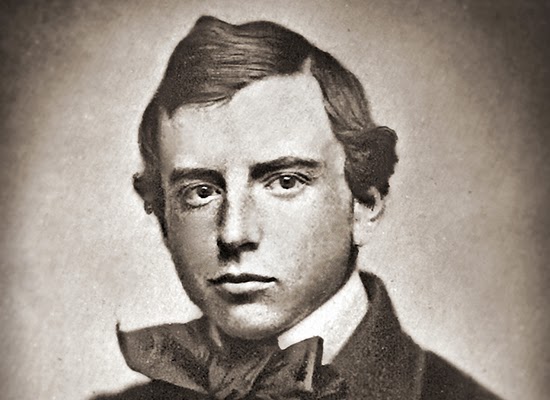President of the American Historical Society: Who is Henry Brooks Adams?
Worthy or worthless, he thought he had achieved what he had done throughout his life by chance rather than on purpose. That's why he's offended to write and research!

(1838-1918) American historian and writer. He has important works on US history. Born February 16, 1838, in Boston, died March 27, 1918, in Washington. He is the grandson of the sixth President of the United States, John Quincy Adams, and the son of Charles Francis Adams. He graduated from Harvard College in 1858 and went to Germany to study law. Seeing that his German is not enough. He made a two-year trip to Germany and Italy and sent his impressions to a Boston newspaper. Returning to the United States in 1860, he became the private secretary of his father, who was elected to Congress. When his father was appointed ambassador to England in 1861, he went with him. During his seven years in England, he met Sir Charles Lyell and John Stuart Mill, and read the books of Auguste Comte and Herbert Spencer. Their views influenced his political, economic, and scientific thinking.
Henry Brooks Adams (February 16, 1838 – March 27, 1918) was an American historian and a member of the Adams political family, descended from two U.S. presidents. As a young Harvard graduate, he served as secretary to his father, Charles Francis Adams, Abraham Lincoln's ambassador to the United Kingdom. The posting influenced the younger man through the experience of wartime diplomacy, and absorption in English culture, especially the works of John Stuart Mill. After the American Civil War, he became a political journalist who entertained America's foremost intellectuals at his homes in Washington and Boston.
After returning to the United States, he became famous as a political essayist. In 1870, he began working as a lecturer in the history department at Harvard. He was also the editor of the North American Review. In his lectures at Harvard, he focused more on medieval history. By giving importance to the participation of the students in the lesson, he tried to develop their investigative aspects and to look at the subjects with a critical eye. In 1876, he began teaching a course in U.S. history from 1789-1840. His lecture notes were an important source for his later historical research. His research with a small number of students was published in 1876 as Essays in Anglo-Saxon Law.
In 1872 he joined the Liberal Republicans movement. The failure of this movement created in him a distrust of politics and American society. He expressed his loss of confidence in his writings. He left the editorship of the North American Review in 1876, at odds with Republican publishers. Leaving his post at Harvard the following year, he settled in Washington and focused on historical research.
Adams was more interested in American history until 1895. His most important book during this period is A History of the United States from 1801 to 1817, which examines the history of the United States from 1801 to 1817. He was elected president of the American Historical Society in 1894 as a result of the success of this work, which is considered one of the most authoritative studies of American historiography, and his other books on American history.
After 1895 he wrote biographies. His work during this period was mostly based on assessments of his own life. Adams felt uneasy about the fact that he had not been able to make good use of his opportunities and skills and to have a permanent job. His book The Education of Henry Adams was both an autobiography and an examination of the social conditions of his time. His drive to research the subject of education was in search of a clue that would explain the reasons for his failure. It aimed to reveal the power centers that dominated the life of his generation, in other words, to find the factors of social evolution. Valuable or unworthy, he thought that what he had done throughout his life was achieved by chance rather than on purpose, and he spoke of the fact that the lives of many people like himself were guided by unforeseen and uncontrollable forces. He stopped writing after 1914, believing that he could not explain this problem, which he could not solve.
He spent the last years of his life in Washington. It approved President Wilson's decision to join World War I. He believed that this would provide the United States with an important role in the birth of the Atlantic Alliance.
